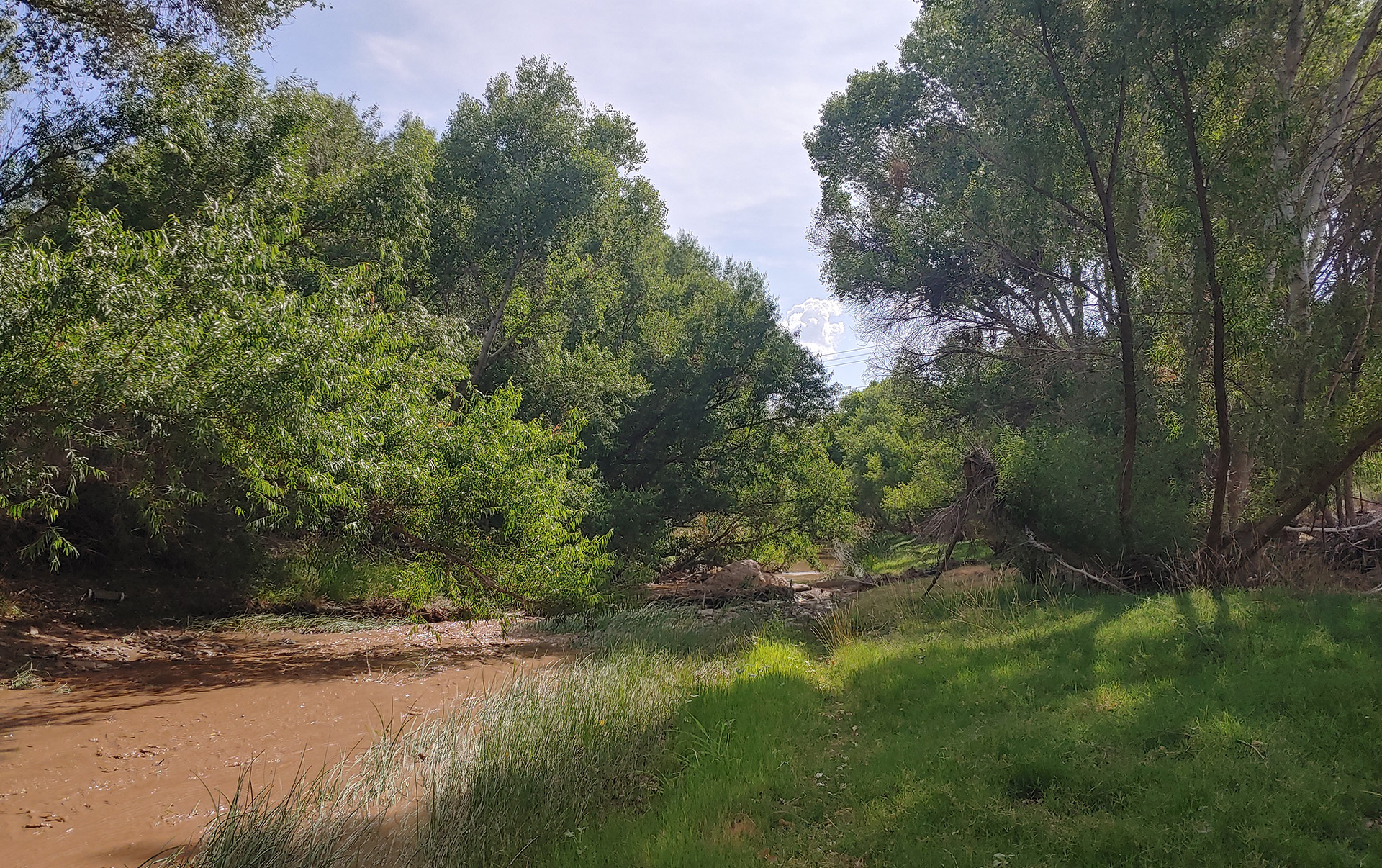Riparian forests are among the most threatened in North America as a consequence of altered hydrological conditions, invasive species and climate change. The Dryland Plant Ecophysiology Lab seeks to identify tree ecophysiological traits that underlie adaptation to heat waves, drought, herbivory and other stressors. Our research is providing critical information for practitioners to restore and conserve dryland riparian forests under current and future environmental conditions.
Selected recent publications:
Posch BP, Bush SE, Koepke DF, Schuessler A, Andregg LLD, Aparecido LML, Blonder BW, Guo JS, Kerr KL, Moran M E, Cooper HF, Doughty CE, Gehring CA, Whitham TG, Allan GJ, Hultine KR. 2024. Intensive leaf cooling promotes tree survival during a record heatwave. Proceedings of the National Academy of Sciences. 121: e2408583121. https://doi.org/10.1073/pnas.2408583121.
Moran ME, Aparecido LMT, Koepke DF, Cooper HF, Doughty CE, Gehring CA, Throop HL, Whitham TG, Allan GJ, Hultine KR. 2023. Limits to thermal and hydrological tolerance in a foundation species (Populus fremontii) in the desert southwestern United States. New Phytologist 240: 2298-2311. https://doi.org/10.1111/nph.19247.
Blasini DE, Koepke DF, Bush SE, Allan GJ, Gehring CA, Whitham TG, Day TA, Hultine KR. 2022. Tradeoffs between leaf cooling and hydraulic safety in a dominant arid land riparian tree species. Plant, Cell and Environment 45: 1664-1681. https://doi.org/10.1111/pce.14292.
Bush SE, Guo JS, Dehn D, Grady KC, Hull JB, Johnson E, Koepke DF, Long RW, Potts DL, Hultine KR. 2021. Adaptive versus non-adaptive responses to drought in a non-native riparian tree / shrub (Tamarix spp). Agricultural and Forest Meteorology https://doi.org/10.1016/j.agrformet.2021.108342
Recent funding sources:
National Science Foundation, MacroSystems Biology (Award # 1340856)
USDA National Institute of Food and Agriculture (Award # 1015-67013-12136)
